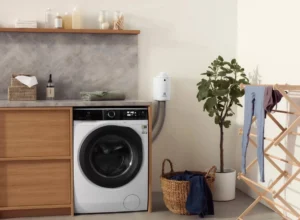
Jak rozpoznać toksyczny związek?
Spis treści:
Toksyczny, czyli jaki?
Początki relacji romantycznej najczęściej przepełnione są miłością i szczęściem – zwykle skupiamy się wtedy na walorach drugiej osoby, przymykając nieco oczy na deficyty i mówiąc sobie, że „miłość przezwycięży wszystkie problemy”. Tymczasem już od początku budowania relacji z drugą osobą powinniśmy być czujni na sygnały alarmowe, które mogą świadczyć o tym, że mamy do czynienia z toksycznym partnerem.
Zwykle o toksyczności mówi się w kontekście związków romantycznych. Tymczasem naznaczone mogą być nią również relacje pomiędzy rodzicami a dziećmi, rodzeństwem, przyjaciółmi itp. Ich charakterystyczną cechą jest przemoc emocjonalna, której niekiedy towarzyszy również przemoc fizyczna. Nie zawsze musi się ona ujawniać przez niekontrolowane wybuchy gniewu, nieustanne kłótnie, obrażanie się, manipulowanie itp. Niekiedy ta przemoc może być bardziej subtelna, jednak jej stała obecność w relacji z toksyczną osobą może doprowadzić do obniżenia samooceny, braku wiary we własne możliwości, a nawet do problemów psychicznych – nerwicy czy depresji.
Jak rozpoznać toksycznego partnera?
Wbrew pozorom niełatwo jest zidentyfikować w naszym partnerze cechy toksycznej osoby, gdyż każda relacja charakteryzuje się własną dynamiką. Na wstępie warto uświadomić sobie, że w zdrowym związku zdarzają się kłótnie i gorsze momenty – to, że nasz partner popełni błąd (np. zareaguje nieadekwatnie do sytuacji), a następnie za niego przeprosi, nie oznacza, że tkwimy w toksycznej relacji. Każdy człowiek ma wady, a związek z drugą osobą i głębokość relacji, którą tworzymy, często wydobywają z nas cechy i zachowania, których się wstydzimy. Niemniej jednak istnieją tzw. sygnały alarmowe – powinny one wzbudzić naszą czujność i skłonić nas do zastanowienia się nad charakterem naszej relacji. Mowa tu o:
- braku skłonności do kompromisów,
- braku dbałości o samopoczucie drugiej osoby,
- braku zainteresowania emocjami drugiej osoby,
- niezaspokajaniu potrzeb fizycznych i emocjonalnych partnera,
- sprawowaniu nadmiernej kontroli (np. czytanie wiadomości skierowanych do drugiej osoby),
- chorobliwej zazdrości,
- braku zaufania,
- stosowaniu szantażu emocjonalnego,
- braku odpowiedzialności za podejmowane decyzje,
- wykorzystywaniu finansowym,
- poczuciu osaczenia ze strony partnera,
- protekcjonalnym traktowaniu drugiej osoby,
- poniżaniu i wyzywaniu partnera,
- deprecjonowaniu sukcesów partnera,
- nieprzewidywalności co do reakcji i zachowań drugiej osoby,
- wykorzystywaniu seksualnym,
- stosowaniu przemocy fizycznej i emocjonalnej.
Osoby toksyczne zwykle dotknięte są różnymi deficytami – mogą mieć za sobą trudne dzieciństwo i przenosić znane ze środowiska rodzinnego schematy zachowania, mogą cierpieć na zaburzenia osobowości (narcyzm, psychopatia czy paranoja), a także zmagać się z chorobami psychicznymi. Niekiedy tacy partnerzy zdają sobie sprawę ze swoich problemów, ale zwykle usprawiedliwiają swoje zachowanie i nie dopuszczają do siebie myśli, że niszczą związek i wywierają destrukcyjny wpływ na drugą osobę.

Polecamy
Nowy związek rodzica. Jak powiedzieć o nim dziecku?
W dzisiejszych czasach model mama, tata i dziecko lub dzieci coraz częściej zastępowany jest patchworkiem w różnych jego konfiguracjach i odmianach. Nasze dzieci stają przed wyzwaniem układania sobie relacji z nowymi partnerami rodziców. Jak powiedzieć dziecku o rozwodzie rodziców i przygotować je na zmiany w rodzinie?
Jak wygląda toksyczny związek?
Pozostawanie w toksycznej relacji jest bardzo trudne do rozpoznania, ponieważ zwykle jesteśmy manipulowani przez swojego partnera tak bardzo, że zaczynamy wierzyć, iż to z nami jest coś nie tak. Inną charakterystyczną cechą takiego związku jest poczucie, że musimy ciągle w niego inwestować (czas, emocje, pieniądze itd.), choć nic nie dostajemy w zamian.
Osoba toksyczna nieustannie wybiela siebie i nie widzi nic złego w swoim zachowaniu, mówi: „Zachowałem/łam się w ten sposób, ponieważ mnie do tego sprowokowałaś/łeś”. Zwykle nie przeprasza, a jeśli do tego dojdzie, nie ma w niej poczucia winy ani wyrzutów sumienia. Często też stosuje strategię „odwracania kota ogonem” – zrzuca odpowiedzialność na partnera, a siebie stawia w roli ofiary. Co więcej, toksyczna osoba cechuje się również sporą nieprzewidywalnością – nigdy nie wiemy, w jaki sposób się zachowa, przez co funduje nam emocjonalny rollercoaster.
Codzienne życie w toksycznym związku naznaczone jest niepewnością, brakiem bezpieczeństwa emocjonalnego (niekiedy również fizycznego), a także poczuciem stałego napięcia. Nasze sukcesy i pomysły zwykle są wyśmiewane i umniejszane, a nasze problemy – bagatelizowane. W efekcie spada nasza samoocena, poczucie własnej wartości, a także wiara w to, że poradzimy sobie bez partnera u boku. Wszystko to prowadzi do życia w ciągłym stresie, frustracji i cierpieniu.
Jak wyjść z toksycznego związku?
Chęć wyjścia z niszczącej relacji nie zawsze musi być równoznaczna z koniecznością zakończenia związku – wszystko zależy od stopnia toksyczności oraz gotowości partnera na zmiany. Warto jednak na początku zatroszczyć się o własne emocje i potrzeby i uświadomić sobie, że nie jesteśmy winni sytuacji, w której się znaleźliśmy. Może to być o tyle trudne, że postrzeganie naszej relacji często uzależniamy od zachowania naszego partnera – raz może być on miły i troskliwy, kiedy indziej – zaborczy i agresywny.
Przy toksycznym związku konieczne jest postawienie granicy, której partner nie może przekroczyć. Należy nauczyć się mówić „nie”, a także jasno wyrażać swoje emocje i odczucia. Reakcja bliskiej osoby jest tu bardzo istotna – nie powinna ich ona negować i bagatelizować.
Jeśli zależy nam na budowaniu relacji, w której dostrzegamy cechy toksyczności, powinniśmy zastanowić się nad podjęciem terapii dla par i przepracowaniem problemów. Warto mieć jednak świadomość, że nie możemy do niej zmuszać partnera. Jeśli nie dostrzega on w sobie winy i nie chce zmienić swojego zachowania, to często jedynym słusznym rozwiązaniem jest rozstanie. Jeśli zdecydujemy się na ten krok, to warto dać sobie czas na przeżycie smutku i innych trudnych emocji, tzw. żałoby po zakończonym związku. Warto też zająć się sobą – rozpoznać swoje emocje, poświęcić czas na swoje pasje, a także budowanie zdrowych relacji z rodziną i przyjaciółmi. Niekiedy można też rozważyć podjęcie terapii indywidualnej, która pomoże nam uporać się z problemami emocjonalnymi po zakończonym związku.
Źródła:
- Forward S., Frazier D., Toksyczny partner. Jak uwolnić się z niezdrowej relacji?, Gdańskie wydawnictwo Psychologiczne, Gdańsk 2018.
- Kowalczyk M., Łącka T., Przemoc i jej mechanizmy w związkach partnerskich, „Pedagogika Christiana” 2011, 1(27).
- Helios J., Jedlecka W., Współczesne oblicza przemocy. Zagadnienia wybrane, Uniwersytet Wrocławski, Wrocław 2017.
- Krzywicka L., Przemoc w bliskich związkach w perspektywie teorii przywiązania, „Niebieska Linia” 2009; 2(61).




































